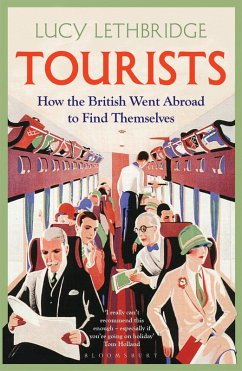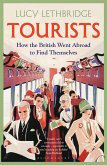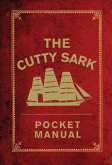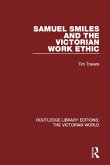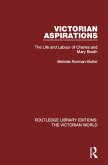*FOYLES NON-FICTION BOOK OF THE MONTH*
'I really can't recommend this enough - especially if you are going on holiday' Tom Holland
'Delightful ... Lucy Lethbridge has written a glorious romp of a book' Kathryn Hughes, The Mail on Sunday
'It is the paramount wish of every English heart, ever addicted to vagabondizing, to hasten to the Continent...'
In 1815 the Battle of Waterloo brought to an end the Napoleonic Wars and the European continent opened up once again to British tourists. The nineteenth century was to be an age driven by steam technology, mass-industrialisation and movement, and, in the footsteps of the Grand Tourists a hundred years earlier, the British middle-classes flocked to Europe to see the sights.
In Tourists, the voices of these travellers - puzzled, shocked, delighted and amazed - are brought vividly to life. From the discomfort of the stagecoach to the 'self-contained pleasure palace' of the beach resort, Lucy Lethbridge brilliantly examines two centuries of tourists' experience. Among a range of disparate characters, we meet the commercial titans of Victorian tourism, Albert Smith, Henry Gaze and Thomas Cook, as well as their successor, Vladimir Raitz, the creator of the modern beach holiday.
The growth of popular tourism introduced new markets in guidebooks, souvenirs, cuisine and health cures. It smoothed over class differences but also exacerbated them. It destroyed traditional cultures while at the same time preserving them.
From portable cameras to postcards and suntans, Tourists explores how tourism has reflected changing attitudes to modernity and how, from the grand hotel to the campsite, the foreign holiday exposes deep fears, hopes and even longings for home.
'I really can't recommend this enough - especially if you are going on holiday' Tom Holland
'Delightful ... Lucy Lethbridge has written a glorious romp of a book' Kathryn Hughes, The Mail on Sunday
'It is the paramount wish of every English heart, ever addicted to vagabondizing, to hasten to the Continent...'
In 1815 the Battle of Waterloo brought to an end the Napoleonic Wars and the European continent opened up once again to British tourists. The nineteenth century was to be an age driven by steam technology, mass-industrialisation and movement, and, in the footsteps of the Grand Tourists a hundred years earlier, the British middle-classes flocked to Europe to see the sights.
In Tourists, the voices of these travellers - puzzled, shocked, delighted and amazed - are brought vividly to life. From the discomfort of the stagecoach to the 'self-contained pleasure palace' of the beach resort, Lucy Lethbridge brilliantly examines two centuries of tourists' experience. Among a range of disparate characters, we meet the commercial titans of Victorian tourism, Albert Smith, Henry Gaze and Thomas Cook, as well as their successor, Vladimir Raitz, the creator of the modern beach holiday.
The growth of popular tourism introduced new markets in guidebooks, souvenirs, cuisine and health cures. It smoothed over class differences but also exacerbated them. It destroyed traditional cultures while at the same time preserving them.
From portable cameras to postcards and suntans, Tourists explores how tourism has reflected changing attitudes to modernity and how, from the grand hotel to the campsite, the foreign holiday exposes deep fears, hopes and even longings for home.

